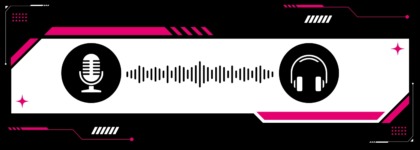What Does the Latest DOE & DOJ Dear Colleague Letter Mean for Online Accessibility in Higher Education?
Updated: February 7, 2024
How the ADA Impacts Online Video Accessibility [Free eBook]
In a “Dear Colleague” letter released on May 19, 2023, the U.S. Department of Justice (DOJ) and Department of Education (DOE) highlight the ongoing efforts to address barriers that prevent people with disabilities from fully participating in online services, programs, and activities offered by colleges, universities, and other postsecondary institutions.
The letter is particularly notable for being published jointly by both the DOE and DOJ, confirming the U.S. government’s alignment of priorities around online accessibility. In the letter, they reaffirm the responsibility of ensuring online accessibility and complying with the Americans with Disabilities Act (ADA) and Section 504 of the Rehabilitation Act.
This joint DOE and DOJ “Dear Colleague” letter provides one of the most direct and comprehensive assessments to date on how the ADA and Section 504 apply to online content produced by higher education institutions.
But what does the latest “Dear Colleague” letter really mean for colleges and universities?
In this blog, we’ll explore the key takeaways from the joint DOE and DOJ “Dear Colleague” letter, where UC Berkeley’s Consent Decree with the DOJ fits in, and how higher education institutions may be impacted.
The May 2023 DOJ/DOE Dear Colleague Letter
In May 2023, the DOJ and DOE published a “Dear Colleague” letter on the topic of online accessibility at higher education institutions. The letter was broken down into four parts and covers:
- Barriers faced by people with disabilities when it comes to participation in online learning services, programs, and activities.
- How online accessibility is covered under the ADA and Section 504
- How the DOJ and DOE have addressed and enforced compliance to ensure online accessibility in higher education
- Guidance and resources for online accessibility
The decision by the DOJ and DOE to publish the “Dear Colleague” letter together sends a powerful message to the higher education industry at large: online accessibility must be prioritized for services, programs, and activities used by both students and the general public.
Let’s take a closer look at some of the key takeaways from the letter.
The DOJ and DOE Stress the Importance of Accessible Online Education
The DOJ and DOE note that in recent years, colleges, universities, and postsecondary institutions have increasingly relied on websites and third-party web platforms to provide services, programs, and activities for both students and the general public.
However, the DOJ and DOE maintain that much of the online content produced by higher education remains inaccessible to disabled individuals who may use captions, screen readers, voice recognition software, and more.
The letter goes on to identify examples of specific digital content types and platforms that are used to distribute educational services, programs, and activities:
- Learning platforms such as edX, Coursera, and Kadenze
- Podcasts and videos
- Social media and third-party media platforms such as YouTube, Spotify, and Apple Podcasts
- Other websites and platforms where higher education content (including lectures, sporting events, graduation ceremonies, and more) is distributed
The DOJ and DOE state that both students and the general public have a right to accessible content posted online by universities, in accordance with the ADA and Section 504:
What Does the ADA and Section 504 Say About Online Accessibility at Higher Education Institutions?
The DOJ and DOE reference two Federal U.S. laws, the Americans with Disabilities Act and Section 504 of the Rehabilitation Act, throughout the latest “Dear Colleague” Letter. These laws provide the legal framework for how the government entities approach online accessibility.
The ADA and Section 504 require higher education institutions, both public and private, to provide equal opportunities for people with disabilities in all operations, including online. And by calling each of these regulations out, the DOJ and DOE are stating in no uncertain terms that the ADA and Section 504 apply to online content produced by higher education institutions.
The ADA
Title II of the ADA prohibits public institutions from denying qualified individuals with disabilities the opportunity to participate in or benefit from services, including online-based programming.
Title III of the ADA extends this protection for disabled individuals to private institutions.
The DOJ and DOE specify that public and private institutions “must take appropriate steps to ensure that communications with individuals with disabilities are as effective as communications with others.” This means that the DOJ and DOE expect higher education institutions to provide auxiliary aids and services, such as interpreters, captioning, accessible technology, and more.
Section 504
Section 504 requires that any institution receiving federal financial assistance provide appropriate auxiliary aids and services to ensure equal access for students with disabilities.
In the letter, the DOJ and DOE stress that because most public and private colleges, universities, and other postsecondary institutions receive financial assistance from the Department of Education, “all of their operations, including all their online programs and activities, are covered by Section 504.”
Dive into the ADA’s impact on online accessibility 🏊
Higher Ed Will Be Held Accountable for Inaccessible Content
The joint DOE and DOJ “Dear Colleague” letter dedicates its second half to discussing enforcement actions and guidance for navigating the creation of accessible online content. It also provides a review of recent compliance efforts and enforcement initiatives around digital and online accessibility, with a particular focus on the 2022 Consent Decree between UC Berkeley and the DOJ.
Both the DOE and DOJ share responsibility when it comes to enforcing compliance and addressing inaccessible higher education content. In addition to Berkeley’s Consent Decree, the letter notes that the DOE’s Office for Civil Rights (OCR) has “resolved and monitored more than 1,000 cases in recent years related to digital access that were triggered by complaints of discrimination by members of the public.”
The letter adds that the OCR additionally launched 100 compliance reviews around digital accessibility in May of 2022, The reviews included a look at both public- and student-facing websites as well as educational platforms maintained by higher education institutions. In less than a year, the DOJ and DOE note that OCR has resolved over 50 of the compliance reviews.
What the Consent Decree Between UC Berkeley and DOJ Means for Higher Ed and Accessible Online Content
How UC Berkeley Has Made Huge Strides in Online Accessibility
UC Berkeley’s Consent Decree with the DOJ has already yielded great progress towards the school’s prioritization of accessibility. In a recent celebration of Global Accessibility Awareness Day (GAAD), UC Berkeley announced new web accessibility procedures and provided detailed information about their steps towards accessibility compliance.
Learn more about how UC Berkeley is making their content more accessible.
The DOJ conducted an eight-year investigation into the accessibility of the University of California at Berkeley’s (UC Berkeley) online content following a 2014 complaint submitted by the National Association of the Deaf (NAD). The original complaint alleged that many of the school’s online courses, lectures, and other content posted on UC Berkeley’s MOOC, UC BerkeleyX, were inaccessible to people who are D/deaf or hard of hearing due to a lack of captions.
In December 2022, a Consent Decree between UC Berkeley and the DOJ was approved. The Consent Decree requires UC Berkeley to make all online content accessible. While the initial investigation mainly applied to UC BerkeleyX, the Consent Decree broadened the scope of affected online content to additionally include all publicly accessible websites on berkeley.edu and subdomains, as well as content published by UC Berkeley on third-party platforms like YouTube, Spotify, or Apple Podcasts.
The Consent Decree also requires UC Berkeley to “revise its policies, train relevant personnel, designate a web accessibility coordinator, conduct accessibility testing of its online content, and hire an independent auditor to evaluate the accessibility of its content.”
The “Dear Colleague” letter’s focus on the UC Berkeley’s Consent Decree cements the DOE’s and DOJ’s shared initiative of making all higher education online content accessible. Furthermore, it offers a glimpse into where the DOJ and DOE may be heading when it comes to holding educational institutions accountable for inaccessible content.
Read the full DOJ and UC Berkeley Consent Decree.
How Higher Ed Institutions Should Proceed
With the DOE’s and DOJ’s holistic focus on digital accessibility in higher education and emphasis on compliance, many content producers and stakeholders at colleges, universities, and other postsecondary institutions may be wondering how to proceed. Fortunately, there are some easy ways to work towards optimal accessibility and stay ahead of the curve:
Learn from UC Berkeley
UC Berkeley’s Consent Decree with the DOJ set a new precedent for online accessibility in higher education. We have a helpful write-up of the takeaways and implications aimed at helping you determine next steps for your institution’s accessibility plan.
Caption Everything & Caption Well
The “Dear Colleague” letter references captioning multiple times throughout. It also references the idea of “meaningful video captions,” which implies that caption quality and accuracy may become a higher priority for the DOJ and DOE when reviewing compliance issues. This aspect is expanded upon in the UC Berkeley Consent Decree, when UC Berkeley’s YouTube channel was deemed inaccessible due to sole reliance on YouTube’s auto-generated captions without remediation.
Accessibility is More Than Video Captions
The letter touches on a broad range of accessibility issues and services that can remediate them. While captions remain a huge focus, the DOJ and DOE make it clear that other “auxiliary aids and services” are necessary for accessibility compliance. This includes screen reader compatibility, audio description, WCAG 2.0 compliance, podcast transcription, and more.
The joint DOE & DOJ “Dear Colleague” letter published in May 2023 provides some of the strongest guidance yet for web accessibility in higher education, but many of the themes are ones that have been hinted at in previous guidances and Consent Decrees over the past several years.
The letter itself is a critical reminder about the necessity of online accessibility, but also functions as a strong statement to those in higher education that the DOJ and DOE expect all online content to be accessible going forward.
Read the full Dear Colleague Letter on Online Accessibility at Postsecondary Institutions.
This blog post is written for educational and general information purposes only, and does not constitute specific legal advice. This blog should not be used as a substitute for competent legal advice from a licensed professional attorney.
Further Reading

Subscribe to the Blog Digest
Sign up to receive our blog digest and other information on this topic. You can unsubscribe anytime.
By subscribing you agree to our privacy policy.







